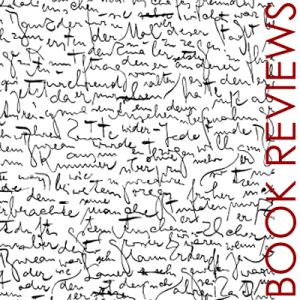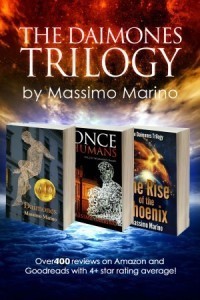Reviews and Critiques
 When we finish writing a piece, how do we critique it?
When we finish writing a piece, how do we critique it?
I’ve already written about how difficult it is to review a book from readers’ perspective, but reviewing and providing meaningful feedback requires skills that even ‘reviewers’ do lack. Those are skills that develop with experience accumulated in creative writing courses, or peer-review groups. It takes dedication and a genuine desire to help the writer, or writer-to-be.
Some writers tend to self-critique, and they start right after “The End” is written. Even a few days wait are not enough, though. If we have just finished our story, we are far too close to be objective. I’ve never understood why writing, which was brilliant when I put it, for so to say, in the drawer, becomes so flawed when I look at it a month later. Are there demons inside changing my pristine prose into blathering? Could they be viruses affecting every computer of every writer in the world?
Giving your story to friends and family isn’t any good. Either they will love it not to hurt you, or hate it to hurt you. There may be an exception if a family member or friend is a professional editor or another fellow writer. Most of us aren’t lucky enough to have one of those. Also, family members are forever thinking your characters are really them, or resent that you’ve used other family members instead of them to build your characters.
Sometimes there are writing circles or groups. Their success depends on how good the critiquing is. If members are out to prove how bad everyone else but themselves is, then you won’t get the help you want and need. If members can’t articulate why something is good or bad, it may offer you some help in identifying that there is a problem, but not what the problem is. Comments like “that comma should be a semicolon” certainly don’t go deep enough when you want to know if Dan was believable when he changed his mind or did you need more foreshadowing.
Time ago, I came across a helpful grid. The original was developed by English writer Alex Keegan (author of the Caz Flood mystery novels and originator of a writers’ boot camp that was a hard-driving self-help group). A later incarnation of the grid, is the one presented below.
Although all critiquing is subjective, going through the list helps focus anyone who is critiquing another’s piece of work. The grid might help to show us what to look for. It can be a tool you can give to people when you want them to evaluate your work with more feedback than saying “I liked it,” or “I didn’t like it.” It also allows them to be a bit more objective in their criticism.
Learning to critique another’s work helps you learn how to critique your own, although to some extent you will always be too close.
The Critique Grid
DIRECTIONS
Add up all the points. It is interesting to see how several people score the same story.
Max Score 230
160+ is a good score
108 is average
OPENING
Superlative opening to a first class story 25
Original and inventive – attention catching 20
Intriguing start 10
Room for improvement – not best feature 5
Slow-pace for short story – picked up later 0
Flat, lacked pace and punch -5
Needed re-writing, an early letdown -10
TITLE
Suited the story 10
Needs improvement 5
Try again 0
PLOT/THEME
Strongest part of the story – Memorable 30
Confidently handled – an assured touch 25
Demanded and deserved full attention 20
Original but not totally convincing 18
A familiar situation but well handled 15
This scenario has been overdone 12
A touch superficial for the effort involved 10
Strained credulity 5
Neither important nor entertaining 0
ACTION AND PACE
Effortless and well constructed 25
Good control and well edited by the author 20
Deteriorated after a promising start 15
A re-write might improve the flow 10
Struggled for control 5
Too involved for a short story 0
Too many unanswered questions -5
Anecdotal – Lacked a good narrative -10
CHARACTERS
Strong, confidently drawn and believable 25
Easy people to understand and to recognise 20
A mixture – some good, some sketchy 15
Main character fine – lesser personnel flat 10
Stock types, one dimensional 5
Hard to believe these people could exist 0
Much more work needed on characterisation -5
ENTERTAINMENT QUOTIENT
A joy to read – Brilliant 40
Quality writing throughout 35
A page turner – as the Bookseller would say 25
Good, but slightly run of the mill 20
Some merit – competently told 15
Might appeal to a minority 10
Difficult to recommend 5
No merit 0
DIALOGUE (if applicable)
Vivid and crisp, in period, idiom and character 25
Story well told in the words of the character 20
Good, with one or two crisp exchanges 15
Good, with one or two crisp exchanges 10
More variety would have helped 5
The idiom failed to match the theme 0
Weakest point in the story -5
LANGUAGE
Effortless style, sensitive feeling for words 30
Smooth and easy to read 25
Flashes of originality gave it extra sparkle 20
Stylish but parts could be polished 18
Fluent without being striking 16
Good command – lacked memorable phrases 15
Good story slightly let down in the telling 10
Little feeling for words 0
ENDING
Totally apt 25
Room for improvement 15
Massimo Marino is a scientist envisioning science fiction. He spent years at CERN and The Lawrence Berkeley Lab followed by lead positions with Apple, Inc. and the World Economic Forum. He is also co-founder of “Squares on Blue”, a Big Data Analytics service company.
Massimo currently lives in France and crosses the border with Switzerland multiple times daily, although he is no smuggler.
As a scientist writing science fiction, he went from smashing particles at accelerators at SLAC and CERN to smashing words on a computer screen.
He’s the author of multi-awarded Daimones Trilogy.
His novels have received the Seal of Excellency from both AwesomeIndies.net and IndiePENdents.org
• 2012 PRG Reviewer’s Choice Award Winner in Science Fiction
• 2013 Hall of Fame – Best in Science Fiction, Quality Reads UK Book Club
• 2013 PRG Reviewer’s Choice Award Winner in Science Fiction Series
• 2014 Finalist – Science Fiction – Indie Excellence Awards L.A.
• 2014 Award Winner – Science Fiction Honorable Mention – Readers’ Favorite Annual Awards
His novels are available from Amazon, Barnes & Noble (Nook), iTunes Apple Store, and many other retailers around the world.
Join his mailing list for new releases, or follow him on Facebook, Google+, and Twitter.
The post Reviews and Critiques appeared first on § Author Massimo Marino.




